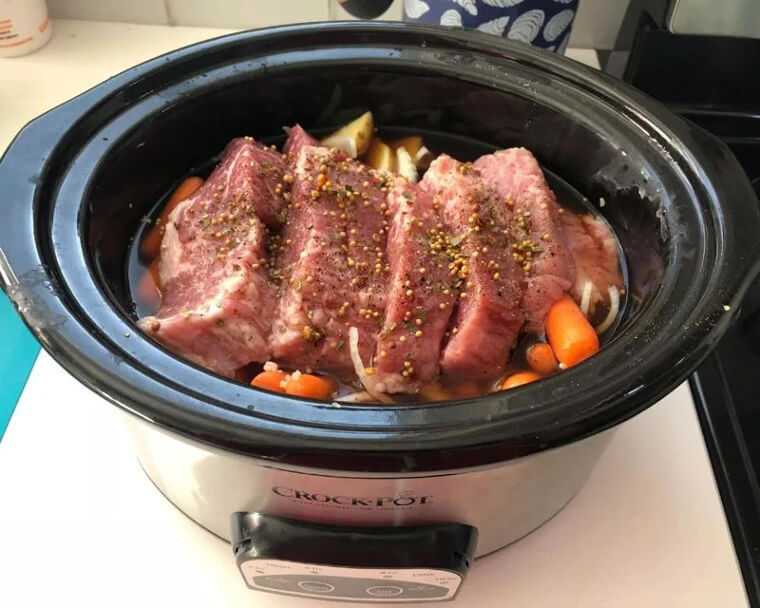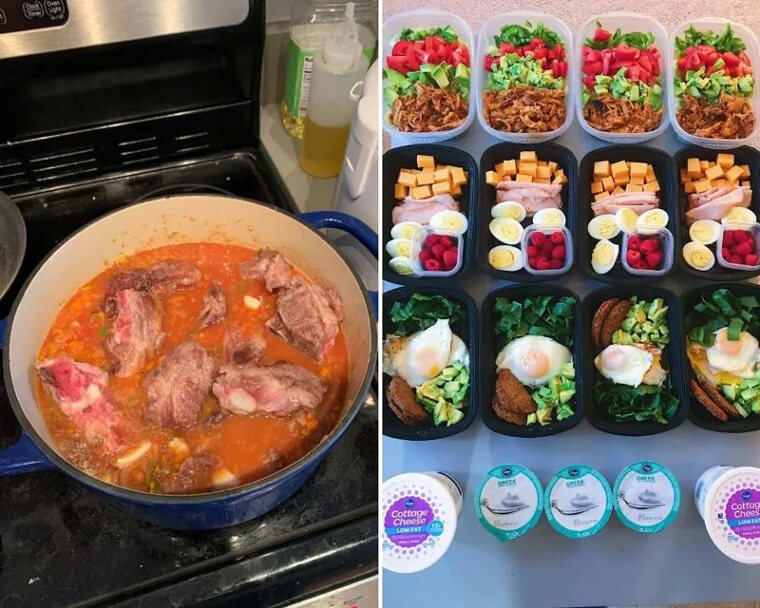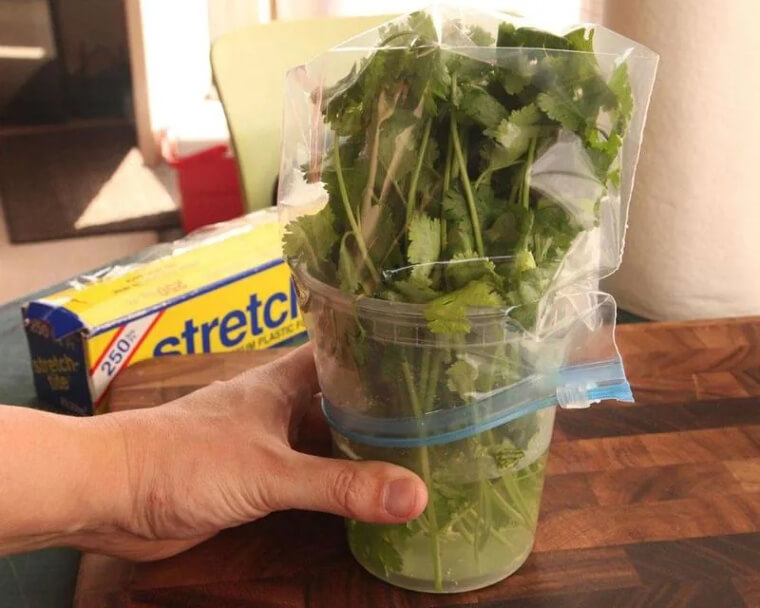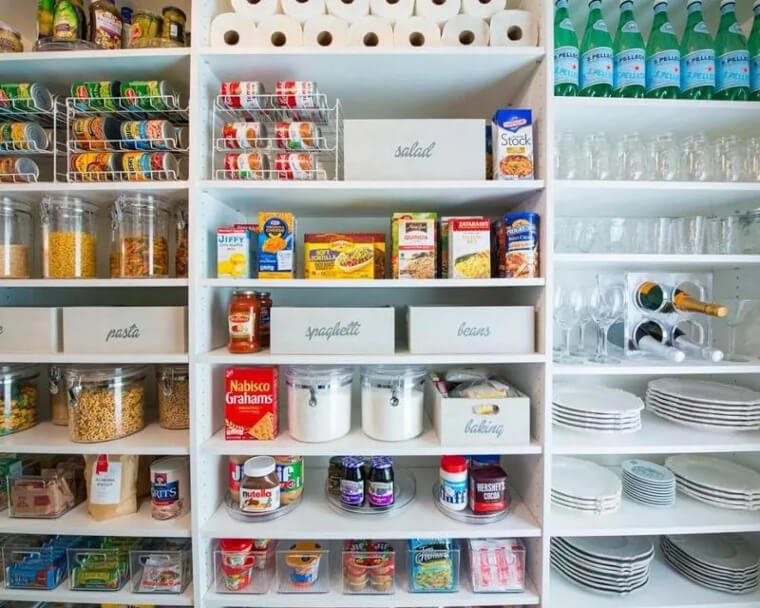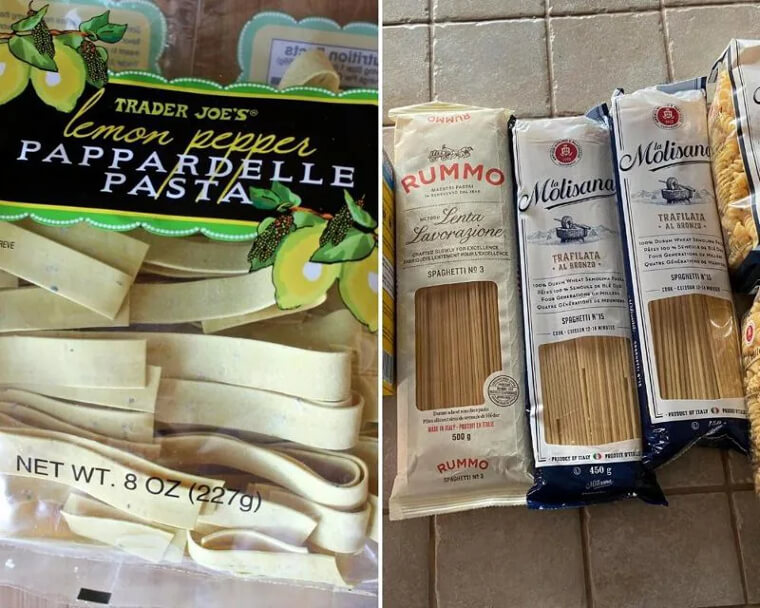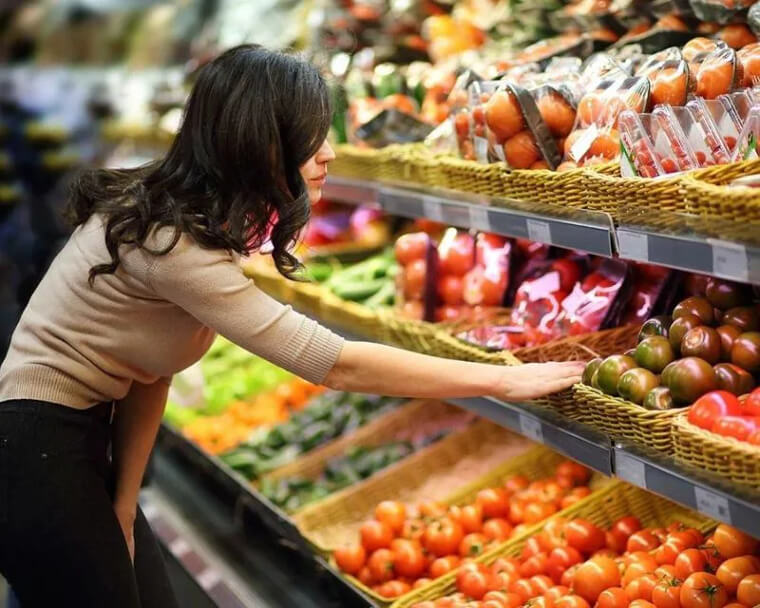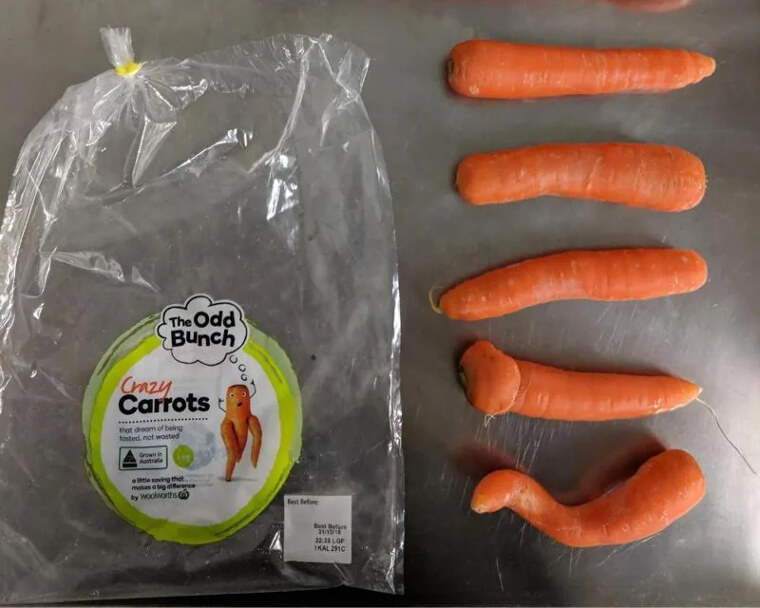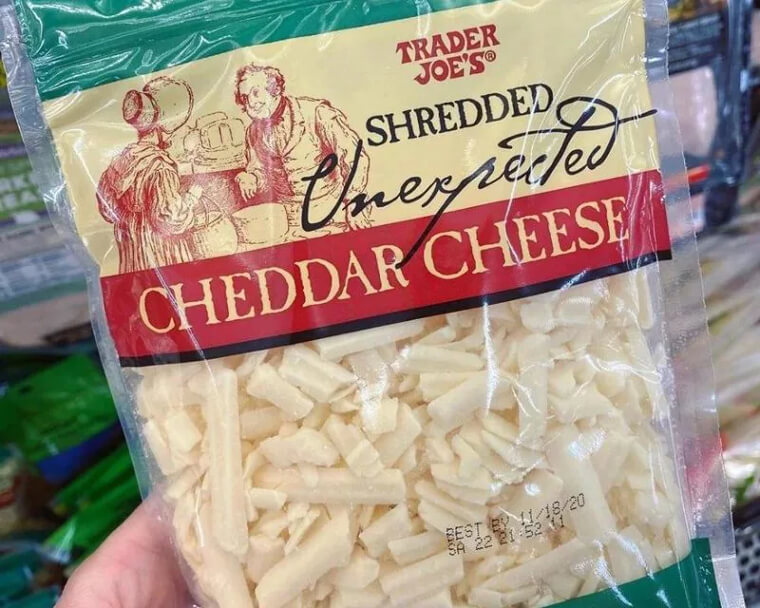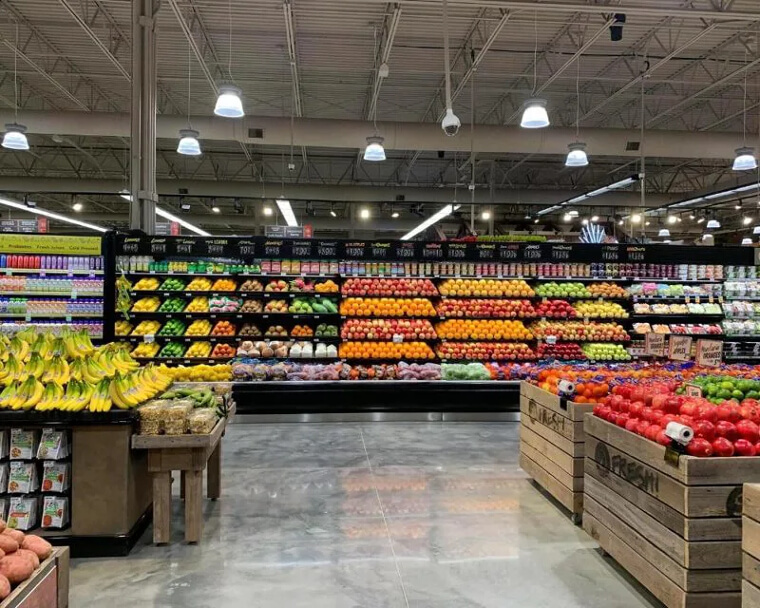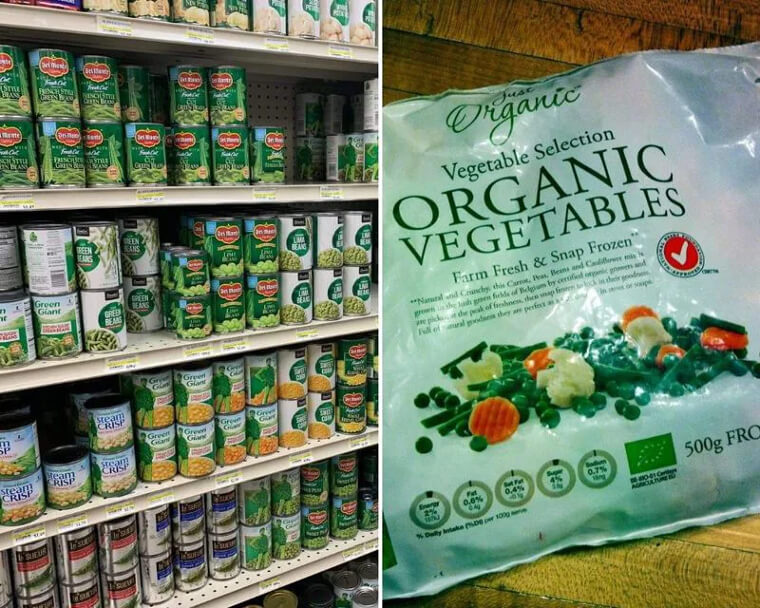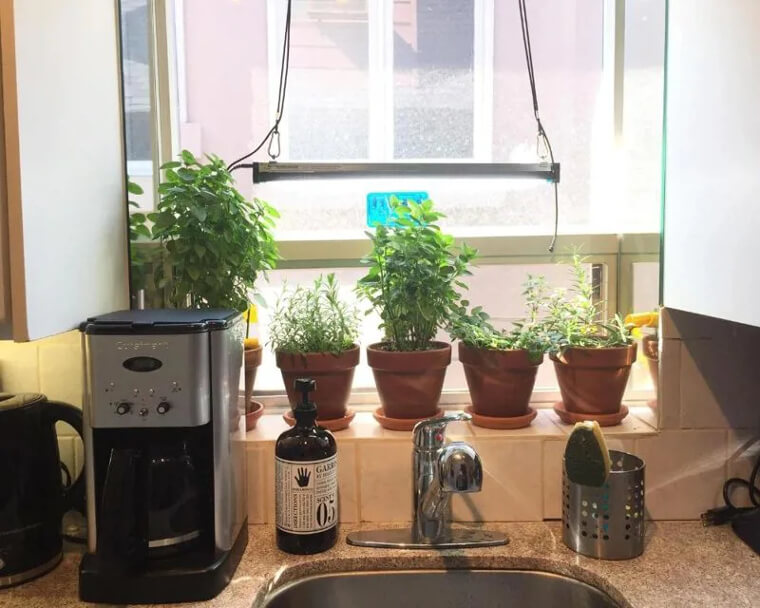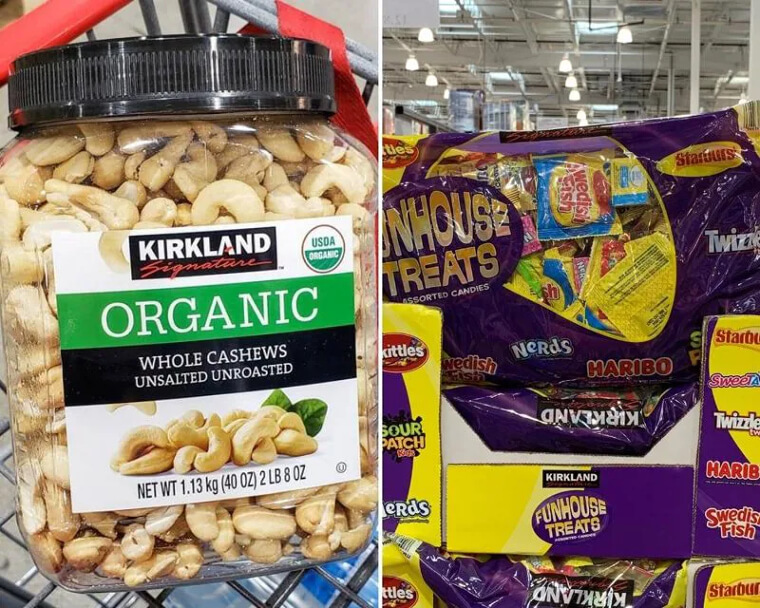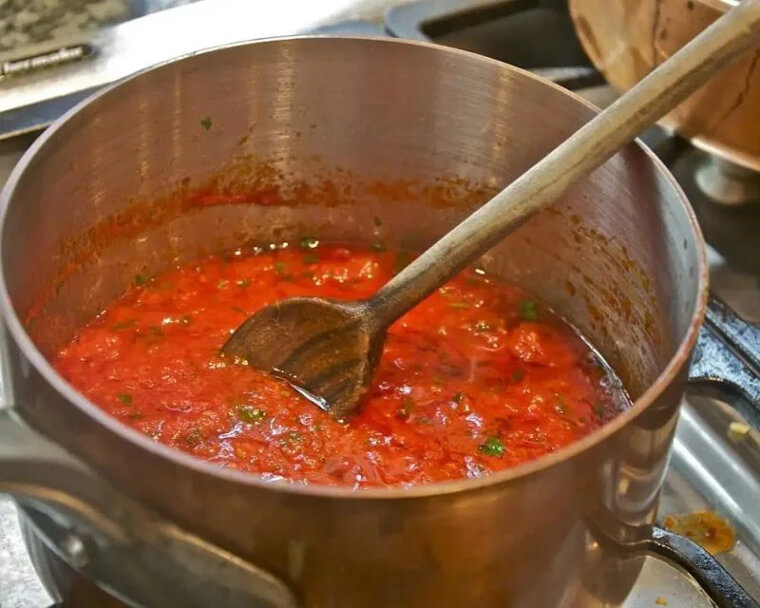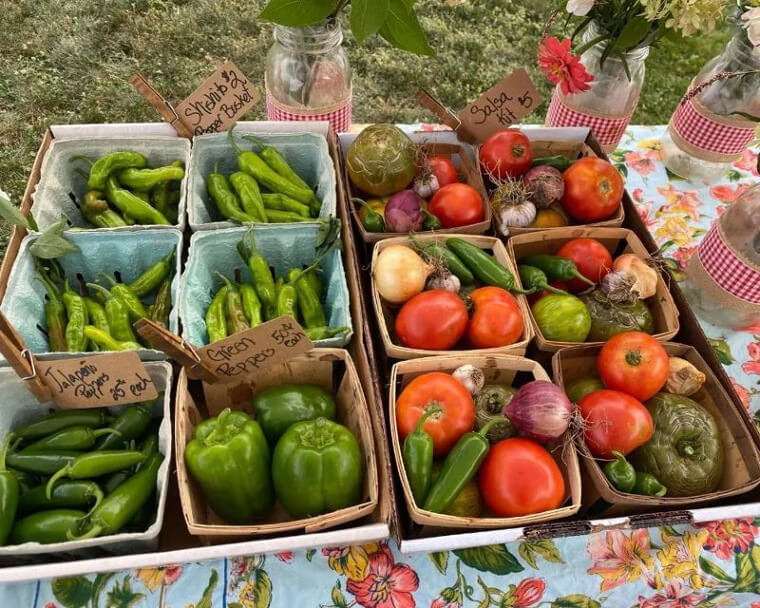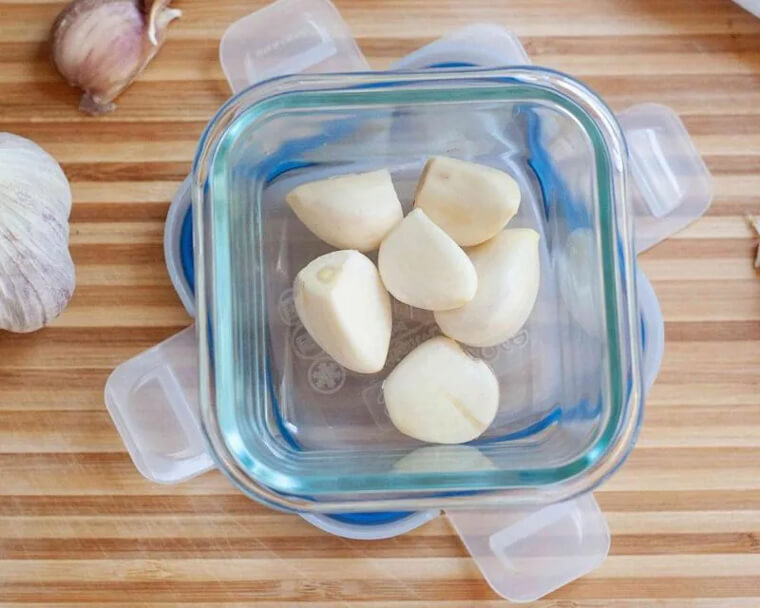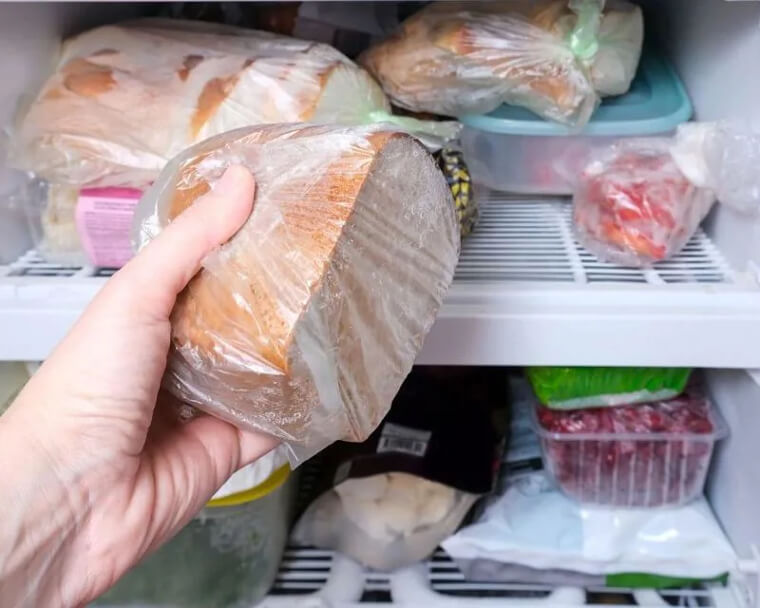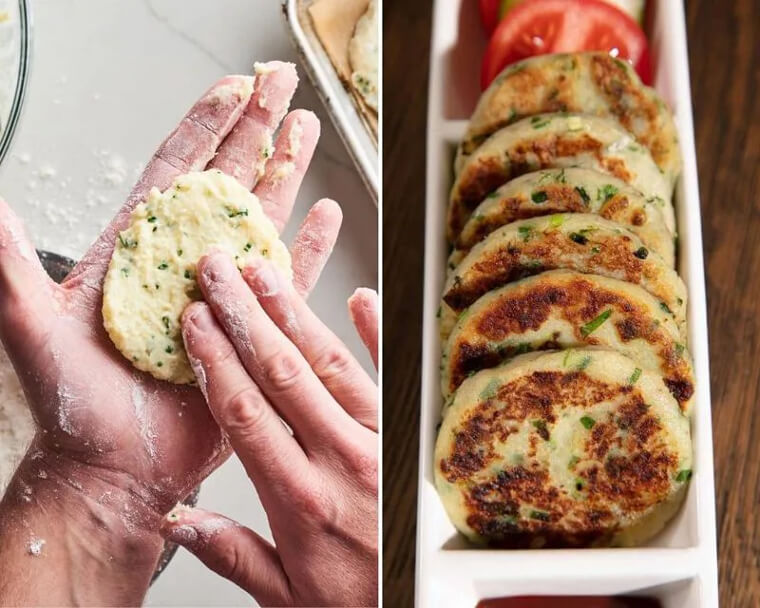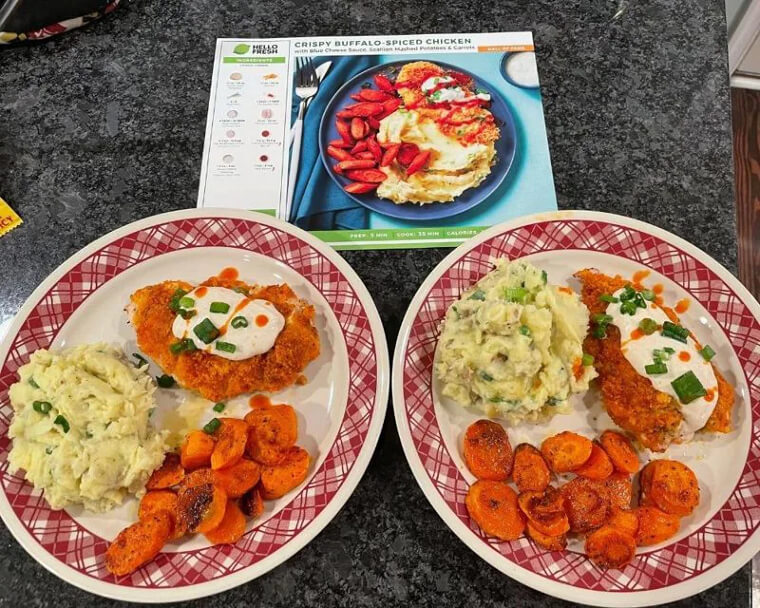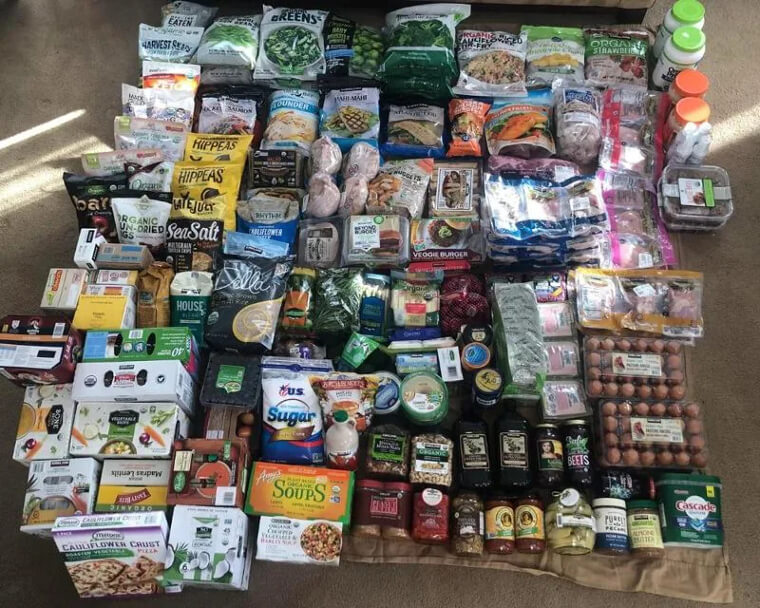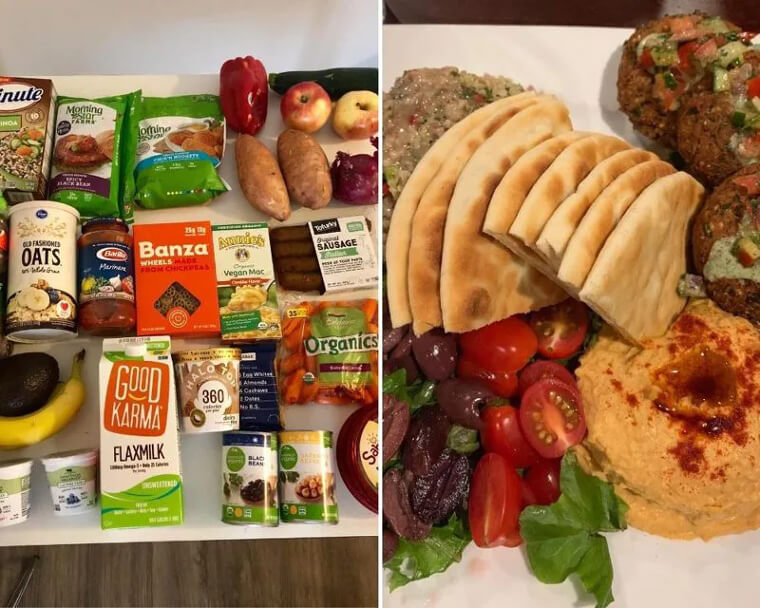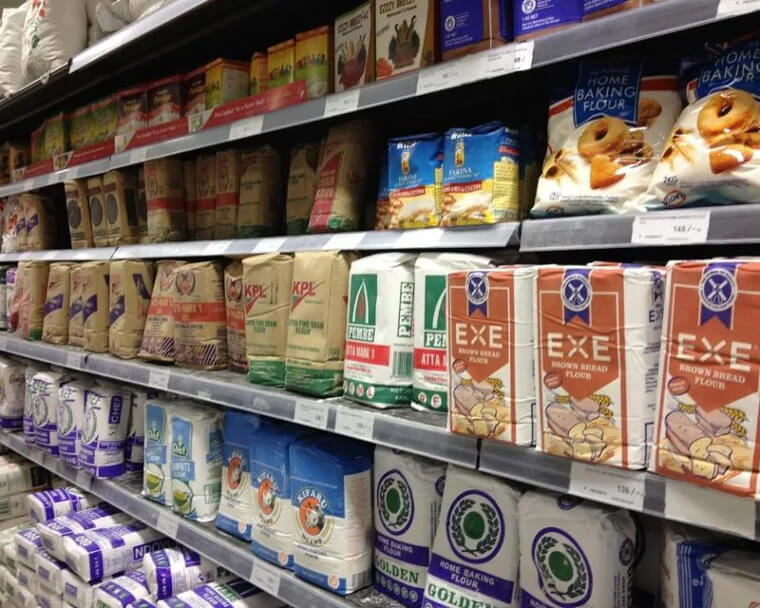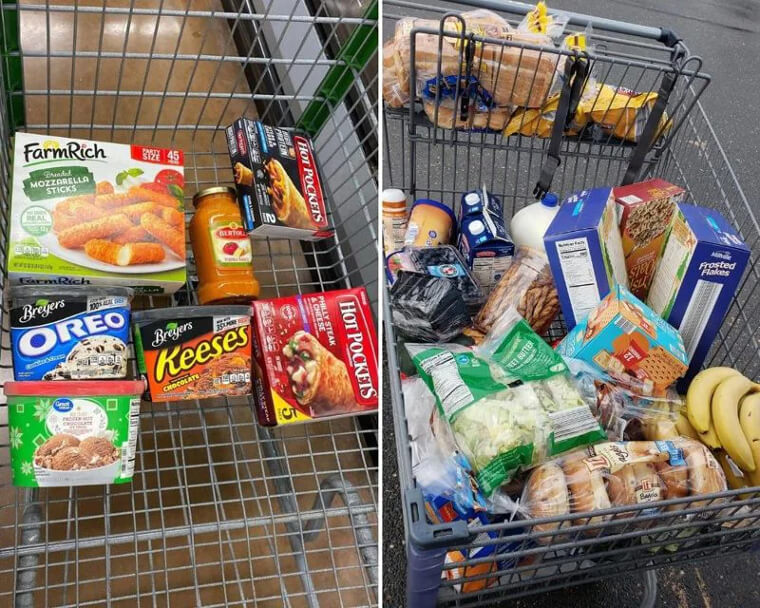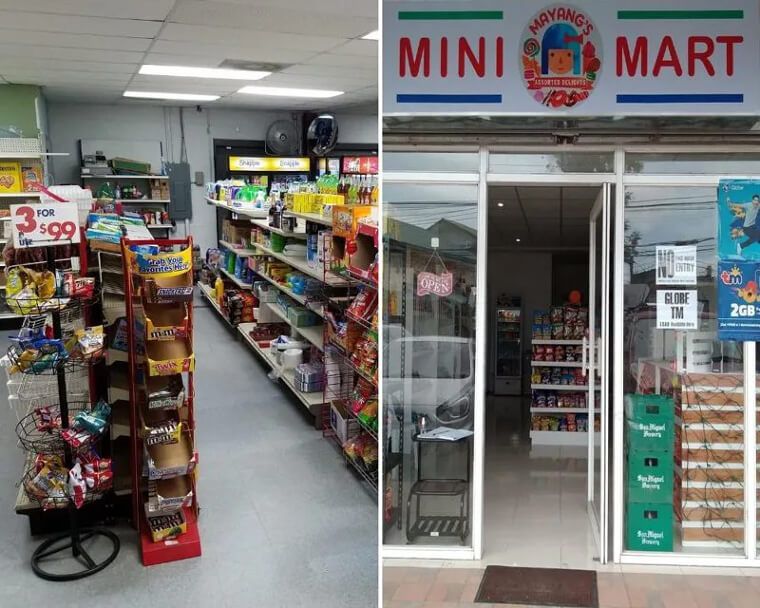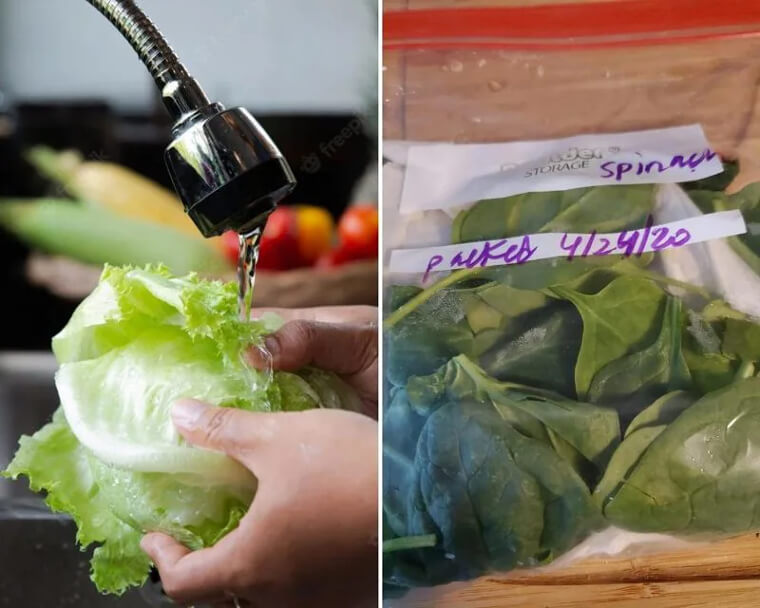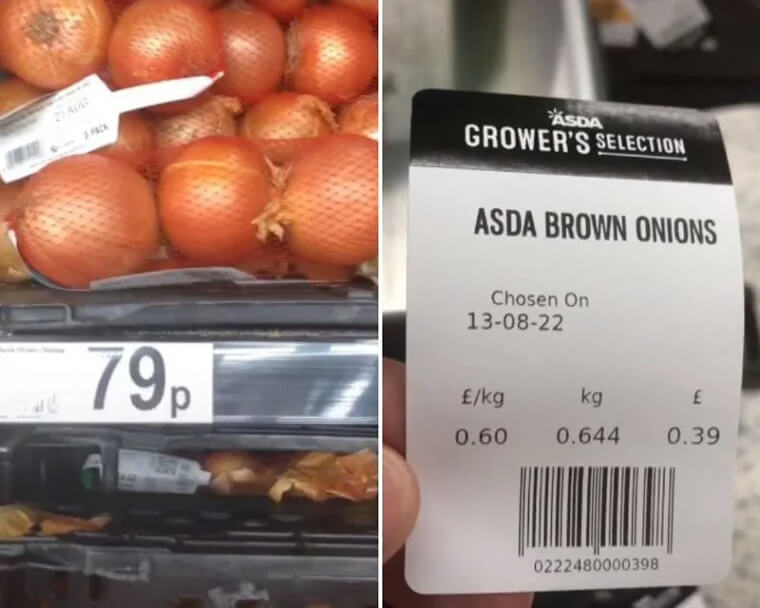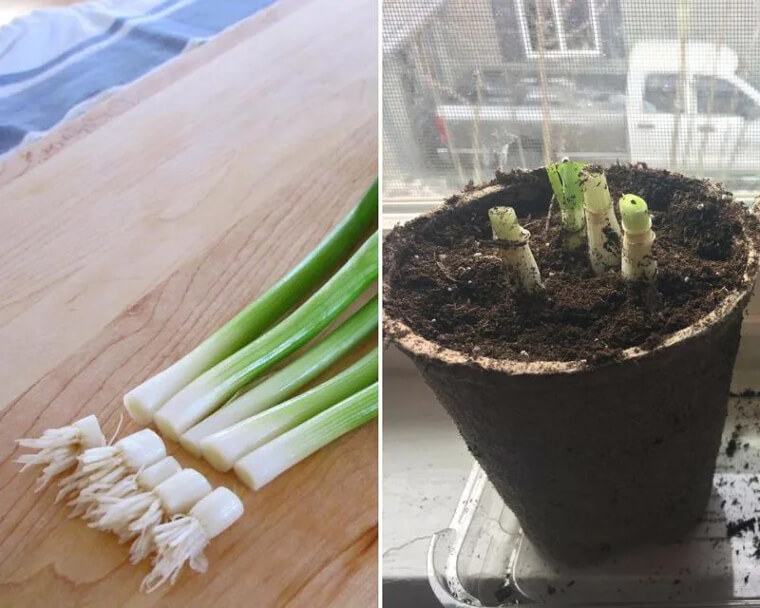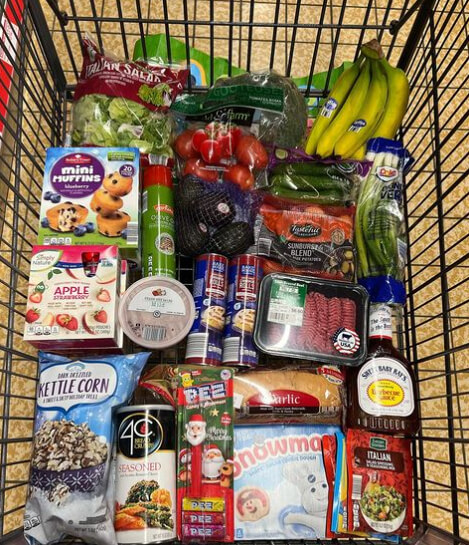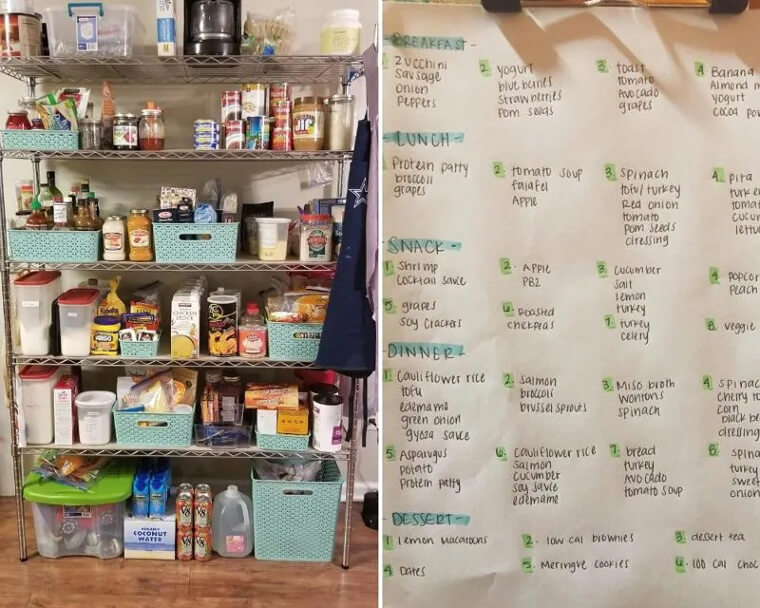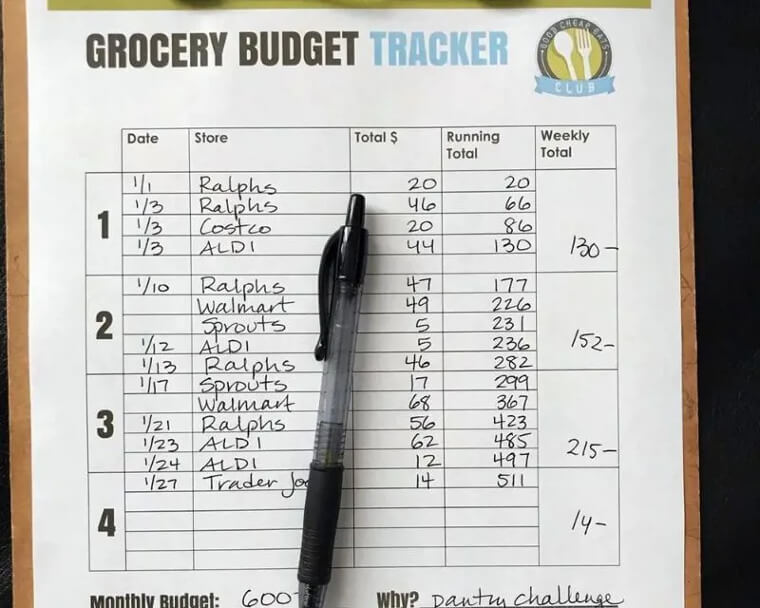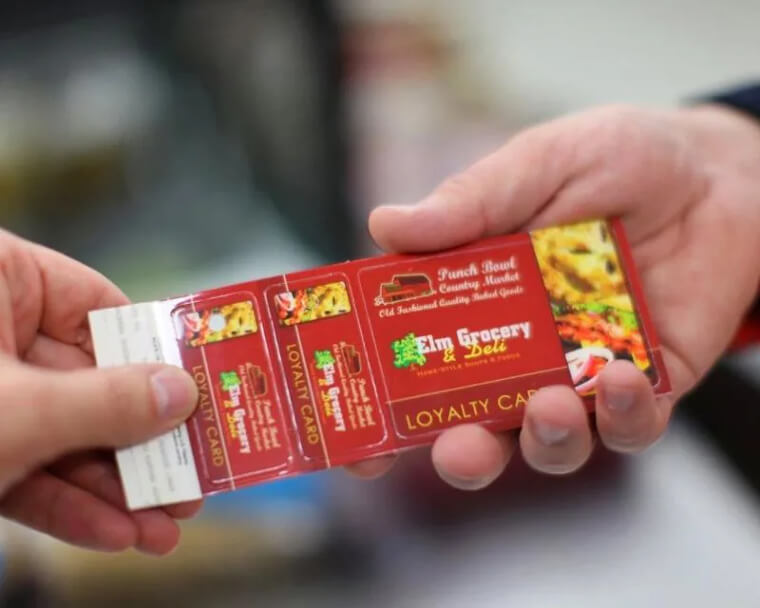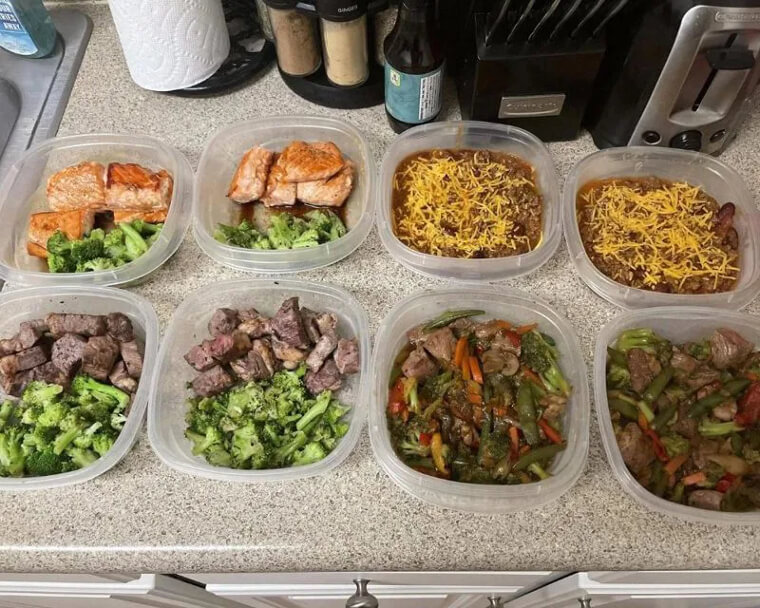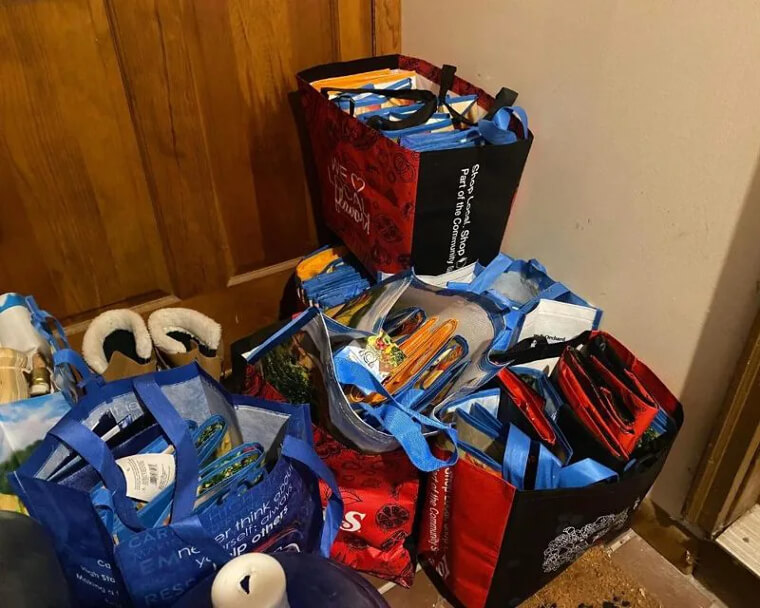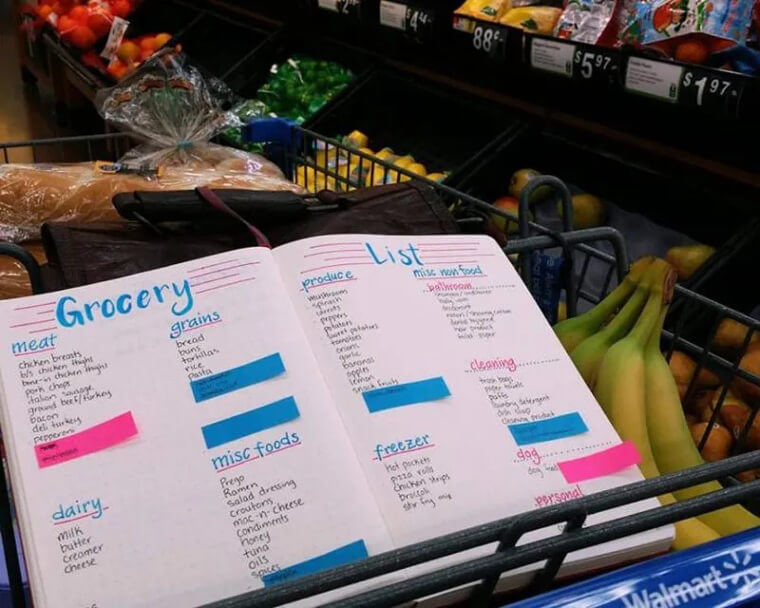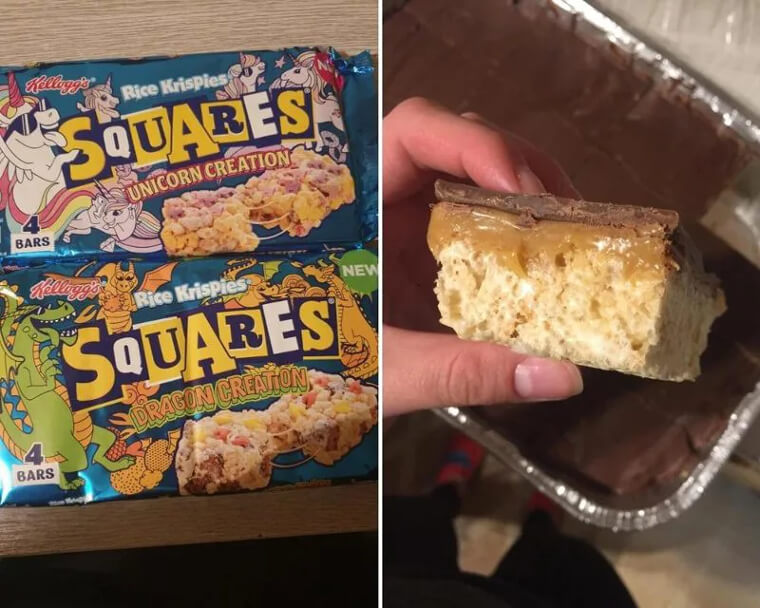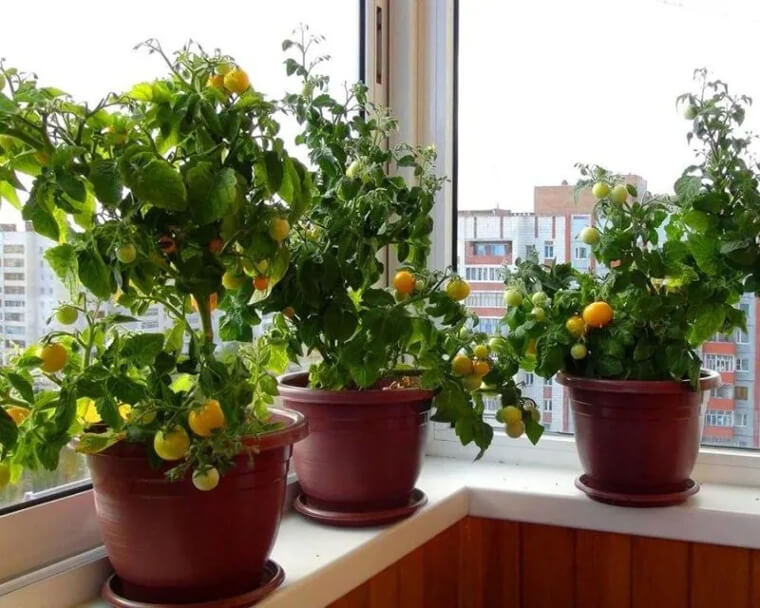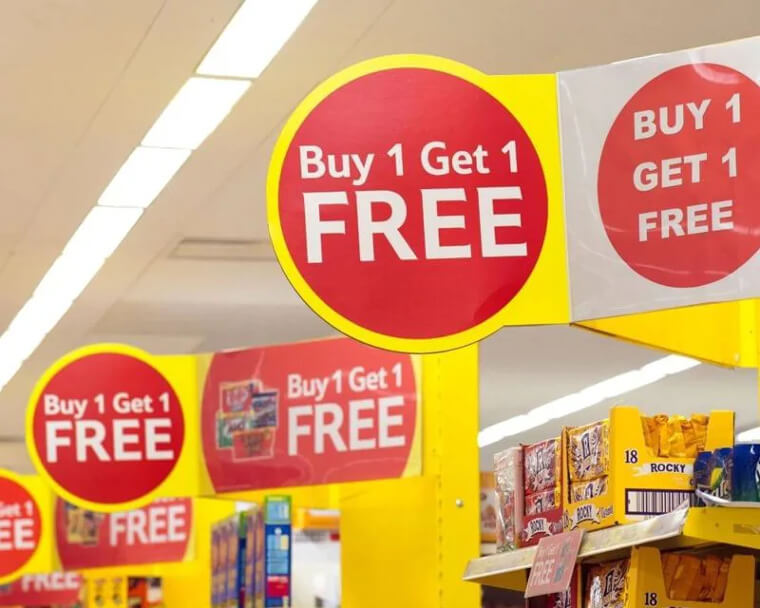Invest In A Slow Cooker For Cheap Cuts
There are a couple of different reasons slow cookers are a great investment for anyone looking to save money. For one, they don't usually use as much electricity as electric ovens or stoves. However, their biggest advantage is their ability to turn cheap, tough cuts of meat into delicious, slow-cooked meals at the end of the day. You don't even have to tend to it; just throw your cheap cuts into the pot, and by the time you get home from work, you've got a great dinner.
And some of the best cuts of meat out there are actually the tougher bits after you slow-cook them all day. Just think brisket, which is extremely tough before it's barbecued.
Cook More Than You Need, Then Save
If you're someone who usually cooks much more than they need by accident, then this hack is for you. It's sometimes a good idea to double up the amount of food you cook and then freeze it. It might cost a bit more upfront, but it'll save you money and time in the long run. You're basically cooking your lunch or dinner in advance, which means you won't have to spend more money on ingredients the next time you cook.
It'll also save you a ton of time since you won't even have to cook another meal whenever you decide to eat the saved portion of whatever you cooked.
Make Your Herbs Last Longer
Fresh herbs are a great addition to just about any meal. However, they do have one big drawback, which is they tend to dry out or spoil quickly. A lot of fresh herbs only have a couple of days in them before they go bad and are unusable. But there is a way to store them that keeps them fresher longer. All you need is a glass, a Ziplock bag, and a rubber band.
Fill the glass with water and place your herbs in. Then cover it with your bag and wrap everything up in a rubber band to keep out excess air and ensure any wilting stays contained.
Don't Take The Kids Grocery Shopping
If you're a parent, then you likely already know this, but kids can be a handful at stores. They usually don't want to be there and make the way they feel known. They also ask for things like snacks or drinks, which can quickly add up. So, sometimes it's better to leave the kids at home with your partner or someone you trust than it is to take them grocery shopping.
It might help cut down on the amount of money you end up spending or at least cut down on the temptation to spend more. It might also be a bit more relaxing.
Take Inventory Of Your Pantry
This next item on the list takes cues from restaurants, which always have to take stock of their inventory to avoid buying or wasting food. It basically involves taking stock of what you already have in your pantry before you go grocery shopping. Not only will this help prevent you from wasting money on things that you already have at home, but it'll also make you more conscious about some of the older items in your pantry.
Just put any new groceries you get at the back of your pantry when you get home and move the older items to the front. Then, just make dishes using those since they're closer to their expiration date to help cut down on waste.
Buy Off-Brand Items
The simple fact of the matter is that you don't always need to buy expensive brands to be able to whip up a great meal. Sometimes, the generic brand is just as good as a more expensive option. Of course, this isn't always true, and it's up to you to decide what products you can and can't go without out, but odds are there are a couple of cheaper alternative just about everyone could save some money opting for.
You could also just try buying more expensive options when you have guests over and want to cook for them, which is what a lot of people tend to do.
Shop The Edge Of Grocery Stores
We're not sure who first designed the general layout of the modern grocery store, but they were geniuses in human behavior. Most grocery stores are designed so that junk foods are situated in the middle, which bogs most people down and gets them to spend more time in these spaces. That's not good since these junk foods are more expensive than fresh fruits, vegetables, and meats, usually located on the edges of a grocery store.
So, the next time you go shopping, try to avoid the middle of the grocery store. You'll find yourself saving a bit of money while also shopping much healthier.
Buy Weirdly Shaped Produce
This might come as a surprise to some, but fruits and vegetables don't always grow perfectly into the shape we're used to seeing on supermarket shelves. Sometimes, for whatever reason, they grow a little wonky and misshaped. However, until recently, a lot of this product was just thrown out because stores thought that no one would buy it. Luckily, more and more stores are starting to sell misshapen produce at a cheaper price.
If you looking to save money then consider buying wonky produce the next time you're out shopping. It tastes the same and buying misshapen produce will also help cut down on food waste.
Avoid Pre-Shredded And Chopped Groceries
It's no secret that grocery stores and companies make consumers pay for convenience. Often, that convenience comes in the form of things like pre-chopped products, such as cheese. However, avoiding these things and just heading straight to the deli can save a lot of money, and it only really takes a few minutes of your time. In addition, the quality of whatever it is you're buying is often better, too.
You can also just buy complete blocks of things like cheese and shred it yourself when you get home, which will give you a bit more versatile in how you can use it.
Sometimes It Pays To Put Off Shopping
Nobody likes going to the grocery store to do the weekly shopping, and a lot of times, some of us are guilty to putting it off till the last minute. However, it turns out that it just might pay to put off shopping until the last possible second. A lot of supermarkets tend to slash their prices at the last possible second in order to try and clear stock and prepare for the next day's inventory.
So, the next time you find yourself at the grocery store late at night because you procrastinated until the last second, search out for price cuts, and you're likely to find some.
Shop At Multiple Stores
It might be a bit of an inconvenience, but shopping around at multiple stores is a great way to save money, especially if you use coupons and plan out your trips at the beginning of the week. Most of the time, one store might have better deals on certain items than another, and vice versa. So, if you can cut coupons and take advantage of the deals that are running at different stores, you're going to save a lot of money.
Yes, it'll take much more time than just going to one grocery store would, but you'd actually be really amazed at how much it saves you on a weekly basis.
Frozen Vegetables Really Aren't That Bad
We usually think of anything that's frozen as extremely bad for us, but that's not always the case, especially when it comes to frozen vegetables. These can be a cheap alternative to buying fresh, and they'll last for months in the freezer. However, the best part is that there's hardly any difference in taste when it comes to most vegetables. And when we say hardly any difference, we mean literally almost no difference.
Of course, not every vegetable can be found frozen, but the ones you can find usually make a great side item for just about any meal. They also make for great additions to stews and soups.
Just Grow Your Own Herbs
If you're looking to save some money on buying fresh herbs, then why not consider starting your own herb garden? Herbs are a great way to add some greenery to a kitchen, and whenever you need some, you just pick off a couple of leaves, and you're good to go. There's no having to run to the store every couple of days or search the fridge to find that your parsley is all dried up.
Herbs are fairly easy to grow from seeds, too, and they don't require much maintenance, depending on where you put them. At most, they just require one watering a day.
Consider Buying In Bulk
Buying in bulk isn't always going to be the better option, especially if you never use all of whatever it is that you buy. However, if you can identify things that you definitely plan on using, then buying in bulk is a great option to save some money. This is especially true if you only buy items that are on sale in bulk. Just try and aim for things that have a long shelf life or that can be frozen.
You might have to get a little creative with your purchases, but sometimes buying from stores in bulk can save you a lot of money in the long run.
Master A Couple Of Dishes
Before you can experiment with a dish, you must first master it. That might sound kind of cheesy (no pun intended), but it really does apply to cooking — and most other things in life. After you master a couple of classic dishes, you'll be able to vary of the recipe and experiment with different seasonings, ratios, and ingredients, which is something that can get pretty pricey if you're constantly out buying different ingredients.
That's why it's much better to focus on a few classic dishes. And those dishes could be just about anything, from dishes from your childhood to dishes from a completely unfamiliar cuisine.
Shop For Produce That's In Season
The great thing about produce is that price is usually determined by quantity. There are no markups based on a brand name. That's why produce that's naturally in season is usually priced cheaper than produce that had to be shipped in and wasn't grown locally. Buying in-season produce not only helps you save money but also helps support local farmers. If you're looking for the cheapest price possible then head to your local farmer's market.
If you don't have a local farmer's market, then most grocery stores will also price produce that's in season lower, too. However, their prices might be able to match buying directly from farmers.
Scour The Grocery Store Shelves
Here's another little trick most grocery stores use to tempt consumers into spending more money. A lot of times, they put their most expensive items in the middle of their shelves, where our eyes naturally tend to fall. However, if you can force yourself to be a more conscious shopper, then you might just start noticing a lot more deals the next time you head to your local supermarket.
Try forcing yourself to look high and low when you're out shopping or even going for the store brand, which isn't always displayed as prominently as you might think.
Keep Garlic Away From The Sunlight
What do garlic and vampires — two eternal enemies — have in common? Well, it turns out that they both hate the sunlight. Garlic will start to sprout if it's stored somewhere in direct sunlight. Meaning it won't last as long and cause you to spend more money going out and buying new heads of garlic. Instead, store garlic in a dark spot at room temperature so that it will last longer.
It'll save you a bit of money and also an unexpected trip to the store to buy fresh garlic the next time a recipe calls for it.
Store Bread In The Freezer
This works for any type of bread, but it's a great hack for more expensive loaves of bread that might spoil quicker than slice loaves. Just store your bread in a freezer and break it out anytime you need a slice. It'll ensure that your bread doesn't go bad before you even have a chance to finish the entire loaf. Just make sure to wrap it in something before you freeze it if it didn't come wrapped.
This hack will help stretch out the life of your loaves and cut down on any waste that might occur if your bread goes bad before you have a chance to finish it.
Switch To Lemon Juice
Buying fresh lemons every time a recipe calls for a little bit of lemon juice can quickly become quite a hassle. After all, a single lemon is pretty much done after just one use, and most people don't buy lemons in bulk. That's why it sometimes just makes more sense to buy lemon juice instead. It'll last on your shelf, meaning no more having to go out to the store and pick up lemons just because a recipe calls for it.
It might cost a bit more than a single lemon upfront, but it'll save you some money in the long run, and it'll also cut down on food waste.
Save Leftover Mashed Potatoes
Potatoes might just be one of the most versatile vegetables out there, and the same goes for leftover potatoes. You can easily turn them into potato cakes or even hashbrowns for breakfast. It only takes a couple of minutes to form them into little circles and another couple of minutes to fry them up. If you want to spice them up a bit more, just add some herbs and a bit of cayenne before frying them up.
Not only will this help save money on another meal, but it'll also cut down on food waste. But you might need to add a bit of flour to the mix for some recipes.
Recipe Boxes Are Sometimes The Cheaper Option
If you think that recipe boxes can be overly expensive, then you're not the only one. However, there are some cases in which recipe boxes can help cut down on grocery expenses. Sometimes buying all the ingredients listed on a recipe box would cost much more than just buying the box itself. So, this might be a good option for those that simply love to cook at home and try out new things.
However, all of these boxes aren't created equal, and we'd recommend actually figuring out how much you spend on groceries on average and then comparing that with the prices of recipe boxes.
Limit Shopping Trips
We're not saying that you have to starve yourself if you run out of groceries, but it is a good idea to limit shopping trips to one every two weeks instead of once a week if you're trying to save money. It might force you to plan out your trips better or use things that you already have at home if you think that you've run out of ingredients.
It also just cuts down on the number of opportunities you have to overspend. If you can stretch out your groceries, then this tip is sure to save you some money.
Consider Going Vegetarian (For At Least One Meal)
Vegetarianism and veganism are probably more popular now than they've ever been. However, if you're not ready to make the switch completely, then we don't blame you; meat is pretty delicious. But it's also usually more expensive than buying produce. So, if you're looking to save money, then you might want to consider having at least one vegetarian meal a week. You can increase the number of meals if you feel like you want to save more money.
The best thing is that there are now plenty of websites and videos devoted to strictly vegetarian recipes, meaning it's not going to be very hard to find your next favorite meal.
Buy Ingredients That Go Further
This is one that most of us probably wish we were better at. Buying ingredients that go further means buying things that can be used in multiple dishes. For example, buying flour will allow you to make things like pancakes or biscuits while still being useful for a roux. The same can be said for things like rice or frozen vegetables. All it really takes is a little bit of planning ahead.
And these types of ingredients are usually very cheap, especially considering all of the different dishes that can be made from them. They're also just great to have around when you want to experiment.
Don't Shop While You're Hungry
This is a pretty common piece of advice, but it holds true. It's usually a bad idea to go shopping while you're hungry. You'll likely find yourself buying much more than you would if you had just eaten. Even if you're someone who is pretty good at sticking to their shopping list, there's no point in adding more temptation to the shopping experience. Instead, just grab a snack or cook a quick meal before you head to the grocery store if you can.
Of course, there will sometimes be times when you're not able to do either one of those and have to go shopping hungry. But, if you keep this little tip in your mind, you might be able to avoid overbuying.
Avoid Minimarkets And Gas Stations
This one might sound kind of obvious, but for most of us, it's extremely hard to do. Most gas stations and minimarkets make their money from purchases like snacks, which are usually priced higher than you'd find in a grocery store. That means walking into one of these temptation-laden stores and buying whatever you see on impulse is usually a bad idea if you're trying to save money.
Again, we know it's kind of hard to just walk in and pay for gas without buying anything, but it really will help save money if you're the type of person with willpower. Unfortunately, we are not.
Store Produce With A Kitchen Towel
Storing produce with a kitchen towel will help it last longer and, in turn, cut down on food waste. It's also really easy. Just wash your vegetables and then dry them and put them away in a Ziplock bag with a kitchen towel inside. The towel will soak up any extra moisture that might've otherwise caused your produce to go bad quicker. This is especially helpful for things like leafy greens.
After all, one of the most annoying things is when you go out and spend money on something only to have that something spoil before you even get a chance to finish it.
Avoid Pre-Packaged Food
Pre-packaged produce is pretty common at most grocery stores. And while it might seem convenient to reach for a sack of onions instead of just grabbing a couple off the shelf, odds are it's going to cost you much more. Most stores price their pre-packaged produce and other foods much higher than items sold individually. The worst part is that it really doesn't even take that long to grab a couple of items off the shelf and go weigh them yourself.
However, that's the price you pay for convenience, so the next time you're out doing your shopping, just be aware that pre-packaged foods often cost much more than their counterparts sold individually.
Plant You Own Scallions
Scallions are a welcome addition to a lot of dishes, and while they're not usually very expensive, it's still worth considering planting your own to save a bit of money. It's also not that hard. You can regrow scallions just by replanting the ends you don't use. Just stick them into some potting soil and give them a little water and they should take root rather quickly and start growing.
In fact, this can be done with a lot of the produce you buy from the store. Just research what vegetables and fruits it works with, and you could quickly be on the way to having your own garden.
Consider Shopping Online
It might seem like shopping online would cost at first, with the delivery fee. However, if you're tired of consistently being tempted and not sticking to your shopping list, then it might be worth giving it a try. There have been a couple of reports detailing how people spend less when they use a delivery app to shop for groceries. It eliminates the temptation to grab whatever you see on the shelf.
If you're one of those people who has no problem sticking to their shopping list, then maybe it's not worth paying the delivery fee, but those are usually pretty small, too.
Pre-Plan Your Meals
This one takes a little bit of extra time, but it's worth it. Pre-planning your meals for the week helps a lot in determining just what ingredients you need to buy when you go shopping. This can help cut down on extra spending on things that you really don't need and might otherwise just sit in the pantry forever.
It might also help you realize what you already have in the pantry, especially if you take stock beforehand. In general, planning out trips and meals is always a good idea if you're looking to save money.
Set A Budget
This might seem pretty obvious, but so many people fail to track their spending and set a monthly grocery budget. If you can track your spending and then set a budget, then you're sure to save a ton of money. It'll help you realize where all your spending is going and then cut out the expenses that you don't need. It's also just a good idea in general to track your money.
There are also a lot of great apps out now that make it super easy to track where all of your money is going and break it all down for you.
Use Loyalty Cards
This tip really depends on the store and what kind of loyalty program they have, but it could help you drastically save money. Just be aware that not all loyalty programs are created equal, and some stores make you pay a fee to join. That said, there are still a lot of great free options out there that can sometimes help you save as much as using a bunch of coupons would.
There are even some stores that allow you to combine coupons with their store loyalty cards to save even more money. There are probably some websites out there you can take a look at that break down the best store loyalty programs.
Make Lunch At Home
For many, one of their biggest expenses is having to buy lunch while at work. This can quickly add up and take a huge chunk out of your paycheck. Luckily, you can always make lunch at home and just bring it with you to work. It takes a bit of discipline, but it really does pay off in the end, and it's usually much healthier than eating out for lunch every day.
If you're having a little bit of trouble sticking to making lunch, then try to make everything over the weekend and store it until you want to bring it to work.
Bring You Bags With You
While it's still not mandatory everywhere, in a lot of places, you have to pay a small fee for single-use plastic bags or buy reusable bags while checking out at the store. So, it's a good idea to make it a priority to remember to bring your own bags with you when you go out shopping. Not only will it help you save money, but it'll also cut down on plastic waste.
It's also only a matter of time before everywhere starts charging people for single-use plastic bags, so it's a good idea to go ahead and make it a habit to bring your own now.
Stick To A List Between Weekly Shopping Visits
It's always a good idea to stick to a shopping list when you're out buying at a grocery store, but even more so if you have to go stock up on some items in between weekly visits. That's because we're more susceptible to overspending when we're out just picking up a couple of items. We don't usually have a budget in mind, nor do we have an idea of what we want to cook for the week.
So, even if you have to run to the grocery store between weekly visits, try and write down exactly what you're going to buy and stick to that list to avoid overspending.
Make Your Own Snacks At Home
Buying snacks and treats at the store is really expensive if you think about it. Sometimes you pay around a dollar a snack, if not more, and the treats usually skimp on the good parts, like the chocolate. So, if you have the time, then consider making your own snacks in bulk over the weekend and saving them until you want to take them for lunch or are craving something sweet.
Homemade snacks are always better than their store-bought counterparts, and they are usually really cheap to make, especially if you make them in bulk and freeze them. You can also experiment with recipes.
Grow You Own Produce
We're not suggesting you start your own farm or even that you plant an entire vegetable garden. However, there are some vegetables that are easier to grow than you might think, and you don't even need a yard to do so. These include peppers, tomatoes, lettuce, cabbage, and plenty of others. You can grow all of these in your home if you have access to enough sunlight, and they don't even take that much care.
Growing your own vegetables will also help cut down on random trips to the grocery store as you're less likely to run out of perishable foods as often if you have some growing in your home.
Scrutinize Offers
This one doesn't just apply to buy one get one free offer, but really to any type of offer, a store is running. It's always a good idea to check and see if you're going to save money by buying a certain product or if there's a cheaper option available. A lot of times, it might just be cheaper to buy a generic version of the product, especially if you're probably not going to use all of it.
Sometimes these deals also tempt us to buy something that we otherwise wouldn't even consider buying just in an attempt to get a good deal, so it's always worth taking a second to scrutinize these types of things.

